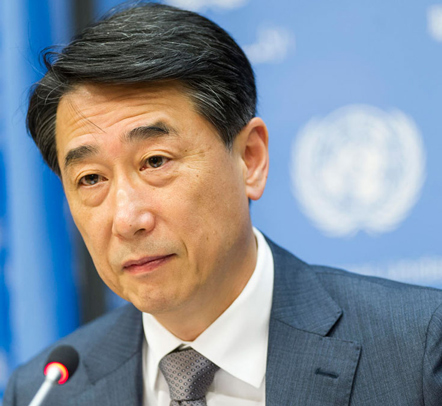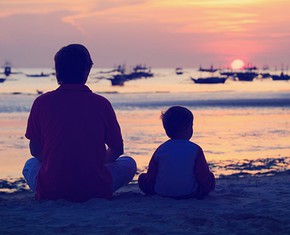Education for living together in an interdependent world is not an optional extra, but an essential foundation. – Audrey Osler, director of the Centre for Citizenship and Human Rights Education, the University of Leeds, England.
In keeping with the requirements of the times, consideration should also be given to teaching the concept of world citizenship as part of the standard education of every child. – The Promise of World Peace, October 1985, The Universal House of Justice.
Educators who want their students to thrive and succeed in our fast-globalizing world increasingly turn to a relatively recent development called GCE—Global Citizenship Education. According to the United Nations Educational, Scientific and Cultural Organization (UNESCO):
Global Citizenship Education aims to equip learners of all ages with those values, knowledge and skills that are based on and instill respect for human rights, social justice, diversity, gender equality and environmental sustainability and that empower learners to be responsible global citizens. GCE gives learners the competencies and opportunity to realize their rights and obligations to promote a better world and future for all. – UNESCO: Global Citizenship Education
GCE educates students and adults in two main areas: global consciousness and global competence. It helps people develop the tools—not only technical and cultural, but empathic and emotional—that allow them to learn how to start thinking of themselves as world citizens. National governments across the planet have begun to utilize GCE to help advance the cohesion and unity of their societies, especially now that large groups of migrants and refugees moving from one nation to others have highlighted humanity’s increasing need for international, intercultural and interreligious understanding.
Baha’i communities all over the world support and recommend GCE programs for children and adults.
On June 15, permanent United Nations missions from France, Korea, Nigeria, Qatar, and the United States co-organized a seminar titled “Global Citizenship Education for a Just, Peaceful, Inclusive and Sustainable World”, held at the UN Headquarters in New York City. The Baha’i International Community and UNESCO were among seven NGOs and UN organizations that co-sponsored the event.
The seminar—archived on UN Web TV—engaged diplomats, UN officials and civil society actors in a dialogue on fostering global citizenship. The seminar focused on education that engenders universal human values conducive to the construction of a more peaceful and sustainable world.
Daniel Perell, a representative of the Baha’i International Community to the UN, moderated the second of two sessions, titled “Opportunities Based on Application in the Field”, which focused on efforts to explore models for global citizenship education. In his brief introductory comments, Mr. Perell connected global citizenship to the principle of the oneness of humankind, which he described as having a material as well as spiritual dimension, quoting a well-known passage from Baha’u’llah: “The earth is but one country and mankind its citizens.”
“Global citizenship education receives wide support at the level of concept,” he said. “The challenges come when we talk about what it looks like in practice.” The seminar, he explained, was a place for actors from various institutions and fields of endeavor to exchange insights and experiences and advance understanding.

Ambassador Oh Joon addressing the UN
Ambassador Oh Joon of the Republic of Korea to the UN gave the introductory remarks for the seminar.
“Global citizenship education is now more widely recognized in the context of a shifting paradigm regarding the role of education in the twenty-first century,” he remarked. “Given the strong need to tackle global challenges, such as violent extremism, global citizenship education shares the importance of a common understanding of universal values, such as justice, human rights and dignity, gender equality, and cultural diversity.”
Ambassador Oh also strongly linked GCE to sustainability and explained that it had been “incorporated into the UN’s sustainable development goals as an important dimension of development for all.”
The event featured a range of panelists, including diplomats from the sponsoring countries, representatives of civil society, and educational experts. Prominent among the themes was the idea that education alone will not necessarily result in constructive participation in society. There was a consensus among panelists that education must incorporate human values if it is to result in a sense of responsibility to the well-being of society, from the local to the international spheres.
One of the panelists, Ramu Damodaran of the United Nations Academic Impact Secretariat, spoke about the important role civil society has played in bringing new ideas to the United Nations. He noted, for example, that among the first mentions of the concept of “world citizenship” as an element of sustainable development came in a 1993 statement from the Baha’i International Community to the first session of the UN Commission on Sustainable Development:
World citizenship begins with an acceptance of the oneness of the human family and the interconnectedness of the nations of “the earth, our home.” While it encourages a sane and legitimate patriotism, it also insists upon a wider loyalty, a love of humanity as a whole. It does not, however, imply abandonment of legitimate loyalties, the suppression of cultural diversity, the abolition of national autonomy, nor the imposition of uniformity. Its hallmark is “unity in diversity.” World citizenship encompasses the principles of social and economic justice, both within and between nations; non-adversarial decision making at all levels of society; equality of the sexes; racial, ethnic, national and religious harmony; and the willingness to sacrifice for the common good. Other facets of world citizenship—including the promotion of human honour and dignity, understanding, amity, co-operation, trustworthiness, compassion and the desire to serve—can be deduced from those already mentioned.
In recent years, GCE has taken on increased prominence because of its inclusion in the proposed Sustainable Development Goals (SDGs), which call for “all learners [to] acquire knowledge and skills needed to promote sustainable development”, including the promotion of “global citizenship”.
UN Secretary-General Ban Ki-moon in 2012 launched the Global Education First Initiative (GEFI), which seeks to spur renewed efforts to reach global education goals. Fostering global citizenship is one of three priority areas on which the program focuses.
Baha’is believe that global citizenship represents the essential spirit of this stage of human history:
What is the spirit of this age, what is its focal point? It is the establishment of Universal Peace, the establishment of the knowledge that humanity is one family. – Abdu’l-Baha, Star of the West, Volume 3, p. 4.
















Comments
Sign in or create an account
Continue with Googleor